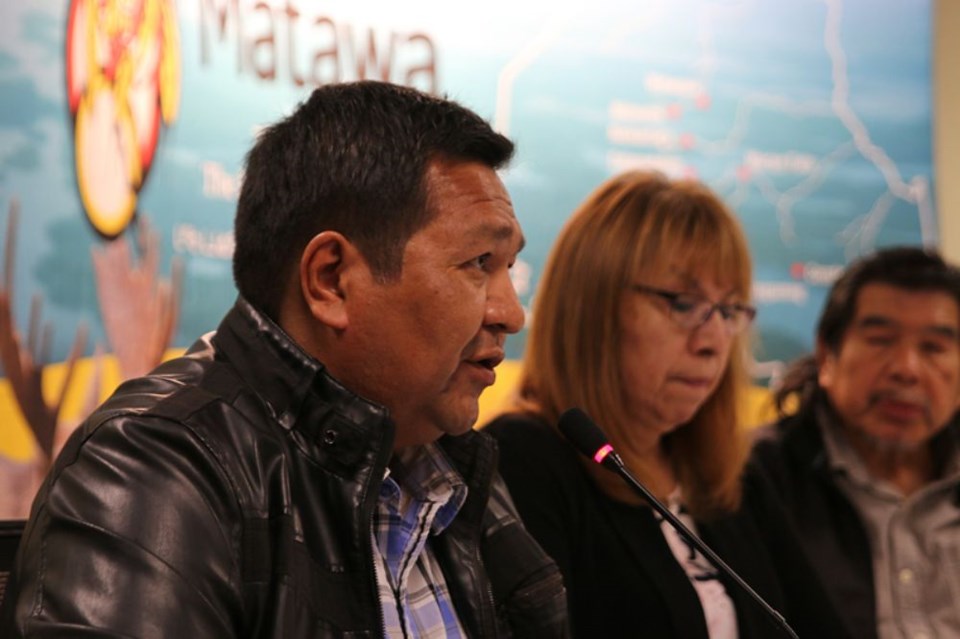THUNDER BAY – First Nations chiefs are stressing the importance in making their voices heard on Oct. 19.
Matawa chiefs held a media conference Wednesday afternoon to release the responses from candidates in the upcoming federal election to a questionnaire that was sent out earlier in the campaign.
The traditional lands of Matawa communities encompass four federal ridings – Kenora, Thunder Bay-Superior North, Timmins-James Bay and Algoma-Manitoulin-Kapuskasing.
“What we’ve told our community members is their vote matters and their vote counts,” Neskantaga First Nation Chief Wayne Moonias said. “A lot of our people in the past have said they don’t need to vote. On Oct. 19 it’s an important time for them to make their votes known. By marking their vote they’re making their voices heard.”
Neskantaga, which is located in the Kenora riding, has been under one of the longest boil water advisories in Canada.
A couple of riding candidates have visited during the campaign, which Moonias said helps voters feel more involved in the election.
“They’ve expressed some of the positions their parties have put forward and they’ve been very receptive in terms of the questions that have been raised by the members. That’s the engagement that’s happening in our communities,” Moonias said.
“It’s a different environment now compared to the previous election, even back in 2011. Yes, we have a maybe 58 or 60 per cent of eligible voters in our community who voted but we feel there’s a lot more interest in our community today because of some of the issues they’re facing today.”
A number of candidates in the four ridings, including Kenora Conservative incumbent Greg Rickford, declined to participate.
The questions included asking the candidates to reveal their party’s stance on community wellness as well as social and economic priorities, environment, infrastructure, resource revenue sharing, jurisdiction, missing and murdered Aboriginal women and recommendations from the Truth and Reconciliation Committee.
The report does not endorse any party, federal leader or local candidate. Instead it just provides responses to the questions.
Nishnawbe Aski Nation deputy grand chief Terry Waboose said it was important to release the information in that manner to not directly influence the choices of any voters.
“It’s not really the role of leaders like myself to make decisions for our citizens, our members and the community,” he said.
“It was simply an exercise to educate the general public out there, as well as to educate and inform the membership so they’re made aware they have a democratic right to vote and solely their choice how they want to cast that ballot.”
